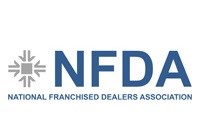The National Franchised Dealers Associations (NFDA) has indicated that it is keen to learn what influence new Vertical Block Exemption Regulation from the European Commission (EC) will have on the UK’s Competition and Markets Authority (CMA).
New EC block exemption guidelines were published last week, with many of its changes geared towards levelling-up what many perceive as an imbalance of power between online and physical retail across Europe.
The guidance was finalised after a long consultation process, in which CECRA and its members took part, and followed publication of a draft version published on July 9, 2021.
A statement issued by the NFDA said: “The National Franchised Dealers Association (NFDA) is currently working with its specialist legal advisers, TLT LLP, and the Alliance of European Car Dealers and Repairers (AECDR) to examine the European Commission’s new Vertical Block Exemption Regulation and the new supplementary Guidelines.
“We have also recently submitted our response to the Competition and Markets Authority (CMA) consultation on the Retained Motor Vehicle Block Exemption Regulation, followed by a meeting with them.
“NFDA will wait for the CMA’s response, although it continues to be important to engage also with the European Commission as its guidance may influence the CMA’s position”.
Back in November the NFDA aired its concerns about the impact of the agency model and OEMs’ direct sales on the car retail sector have been laid bare in its Consultation Position Paper and Response to the Competition and Markets Authority (CMA) on “Retained Vertical Agreements Block Exemption Regulation”.
In its comments to the CMA, the NFDA stated that increased consolidation among car retailers and manufacturers along with OEMs’ direct sales and agency model strategies – along with the risk of increased control of the customer journey – posed a threat to competition and value for car buying consumers.
Under new guidance issued by the EC brands and manufacturers will be able to supply goods at a different price to online and offline retailers.
In cases of "dual distribution" by the supplier, i.e. when the supplier sells directly to the final customer and is in competition with its network, it also regulates the need for automotive networks to deliver customer data to its OEM partners.
European automotive retail body CECRA noted that its accompanying guidelines also provide a “framework for agency status”.
Noting some of the resolutions, it said: “Under competition law, this status does not need to be exempted since the agent is merely an auxiliary of the supplier for the sale of its products and is therefore no longer an independent undertaking.
“However, in this case, all investments and risks relating to the marketing of the products must be borne by the supplier.”
CECRA added: “CECRA is particularly pleased to have been heard on the need to separate the assumption of costs from the remuneration of the agent: the draft allowed for the assumption of costs on a flat-rate basis or as a percentage of the turnover achieved, which opened the door to confusion between the reimbursement of costs which is the responsibility of the supplier and the commission which remunerates the intermediation service.
“It was essential that this be clearly separated, which is now the case as the Guidelines in point 35 state that while manufacturers may use different methods to reimburse an agent or commissionaire for their costs: ‘the method used by the principal should allow the agent to easily distinguish between the amount(s) intended to cover the relevant risks and costs and any other amount(s) paid to the agent, for example intended to remunerate the agent for providing the agency services’.”
Click here to read the EC's new regulations and guidelines.
Further automotive aftermarket sector-specific block exemption regulation will be published by the EC in June 2022 for an entry into force on June 1, 2023.



















Login to comment
Comments
No comments have been made yet.